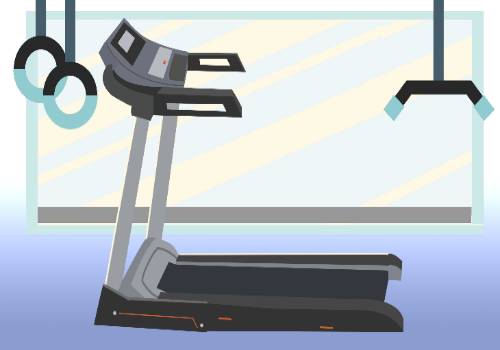 2023-06-03 23:49:45 来源:科研圈
2023-06-03 23:49:45 来源:科研圈
夏天不可避免会越来越热吗
从地中海到南亚,世界各地都在打破高温记录,最近打破纪录的,则是太平洋西北部和加拿大西部。
 (资料图片)
(资料图片)
“在不列颠哥伦比亚省各地,居民正在应对破纪录的热浪。”“周六有17项温度记录被打破,加拿大西部大部分地区都发出了高温警告。”“这不是一个平常的五月,这甚至不是一个极为干燥的五月,这过于异常了。”
有些地区的温度达到了90年代中期的水平,也就是比正常情况下高出约10~14摄氏度。北半球已入夏,随着气候变暖,近几年的炎热夏季将成为我们余生中最凉爽的几个夏季。
那么首先,热浪是如何形成的?
当一个高压系统在同一个地区上空停留多天时,热浪就会形成。在这些系统之下,空气下沉导致云层无法形成。天空中没有云意味着太阳可以直接烘烤地表。想象一下坐进在太阳下暴晒过的轿车,大概就是这么一回事。
而这可能十分危险。2021年6月,北美的超强热浪导致了数百人死亡。随着气候的变化,像这样的热浪将发生得更加频繁、持续时间更长,而且随着时间的推移,它们可能会变得更加强烈。高温记录更容易被打破,在某些情况可能会创下十分夸张的新高,通常而言,高温记录只会比此前高出零点几度,但是不久前在加拿大哈德逊湾附近,一处仍被冬季冰雪所覆盖的地方,新的高温记录比原来高出了7摄氏度,气温比平均水平上升了22摄氏度。
但是不一定非得等到创下高温记录我们才会感到难受,特别是在像太平洋西北部这样空调不常见的地方,那里的人们对热的适应性较差,而在一年中的某些时候,比如5月,热浪会让日子变得十分难耐。对于老人、儿童和患有哮喘或心脏病等健康问题的人来说,热浪也特别煎熬。构成问题的不仅仅是白天飙升的高温,更高的夜间温度意味着人体很难有机会降温,特别是如果没有空调。
湿度在我们对热的体验中也扮演着重要的角色。夏天在户外活动过的人都知道,高温会让我们出汗,这实际上是身体的自然冷却系统,因为汗水在蒸发的过程中会让我们的皮肤降温。但是,当湿度很高时,这种蒸发速度就会减慢,甚至停止。
随着全球气温逐年升高,记忆中最强的热浪和夏天将变得不值一提。1998年的夏天曾是有记录以来最热的夏天,这要归功于厄尔尼诺(El Niño)现象,但现在,它只能算是第十热的年份。厄尔尼诺现象发生时,热带太平洋东部地区的海水温度会比平时更高。释放到大气中的热量使会让影响全球天气的大型空气循环模式发生变化,这种热量也导致全球气温升高。
根据美国国家海洋和大气管理局(NOAA)在5月11日发布的预测,2023年有90%的可能性出现厄尔尼诺现象,而且可能……[查看全文]
Heat Waves Are Breaking Records.
Here"s What You Need to Know
Andrea Thompson: As you might have heard, heat records are breaking all around the world from the Mediterranean to South Asia. Most recently, records fell in the Pacific Northwest and western Canada.
Newscaster: Across British Columbia, residents are dealing with a record-breaking heat wave.
Newscaster: Seventeen temperature records fell on Saturday with heat advisories falling across much of Western Canada.
Interviewee: This is not a usual May. This is not even an abnormally dry May. This is something exceptional.
Kelso Harper: A few places saw temperatures in the mid-90s. For context–that’s about 20 to 25 degrees Fahrenheit above normal.
Thompson: Today we’re talking about heat. It’s nearly summer in the Northern Hemisphere, and with climate change, today’s hot summers will be among the coolest of the rest of our lives.
Thompson: I’m Scientific American’s earth and environment editor, Andrea Thompson.
Harper: I’m Kelso Harper, a SciAm multimedia editor, and you’re listening to Science, Quickly.
Harper: So, Andrea, first things first. How does a heat wave even happen?
Thompson: Heat waves happen when a high pressure system parks itself over an area for several days. Under these systems, air sinks, which keeps clouds from forming. And if you don’t have clouds in the sky—that means the sun can really bake the surface. Imagine getting into your car after it’s been sitting in the sun, and you get the picture.
Harper: Right, and this can be really dangerous. In June of 2021, a particularly strong heat wave in the same area contributed to hundreds of deaths.
Thompson: With climate change, heat waves like this are happening more often, they’re lasting longer and they’re likely to become more intense as time goes on.
Harper: And heat records are more likely to be broken and in some cases completely shattered. Normally, heat records are broken by a few tenths of a degree. But last week in Canada near Hudson Bay—which is still covered in winter ice—a heat record was broken by a huge 7 degrees Celsius, or more than 12 degrees Fahrenheit. The temperature shot up 40 degrees Fahrenheit over the average.
Thompson: But a heat wave doesn’t have to set records to feel miserable. Especially in places like the Pacific Northwest, where air conditioning isn’t as prevalent and where people are less adjusted to heat. And at times of the year—like May—when people aren’t expecting them.
Harper: Heat waves are also particularly tough on the elderly, young children and people with health conditions like asthma or heart disease.
Thompson: And it’s not just the soaring high temperatures of the day that pose a problem. Higher nighttime temperatures mean people don’t have a chance to cool down, particularly if they lack air conditioning.
Harper: And humidity plays a role in our experience of heat, right?
Thompson: Yeah, as anyone who’s stepped outside on a summer day knows, high temperatures cause us to sweat. That’s actually the body’s natural cooling system, because the sweat cools our skin as it evaporates. But when the humidity is high, that evaporation slows down and can eventually stop.
Harper: And with global temperatures rising higher every year, it sounds like the heat waves and summers that are among the hottest in memory today are going to be left in the dust.
Thompson: Yeah, the summer of 1998 was by far the hottest summer on record at the time, thanks to a blockbuster El Niño event, but it’s now the 10th hottest.
Harper: Speaking of El Niño, forecasters are expecting one to develop this year. Can you remind us what an El Niño actually is?
Thompson: An El Niño happens when ocean waters in the eastern part of the tropical Pacific are hotter than usual. The heat that releases into the atmosphere shifts around some of the big air circulation patterns that influence weather all over the world. That heat also amps up global temperatures.
Harper: And how likely is it that we’ll see one this year?
Thompson: There’s about a 90 percent chance right now, and it’s looking like...[full transcript]




















 每日快播:浙江舟山:岛民退休“云端”办
每日快播:浙江舟山:岛民退休“云端”办 市值超长城!理想汽车成国内第二车企_每日播报
市值超长城!理想汽车成国内第二车企_每日播报 阿尔山市气象台发布雷电黄色预警【III级/较重】【2023-06-03】 当前快看
阿尔山市气象台发布雷电黄色预警【III级/较重】【2023-06-03】 当前快看 每日速递:这些商铺竟在学校周边偷偷卖香烟
每日速递:这些商铺竟在学校周边偷偷卖香烟 房子怎么挂在58上卖(怎样把房子挂58出售)
房子怎么挂在58上卖(怎样把房子挂58出售)